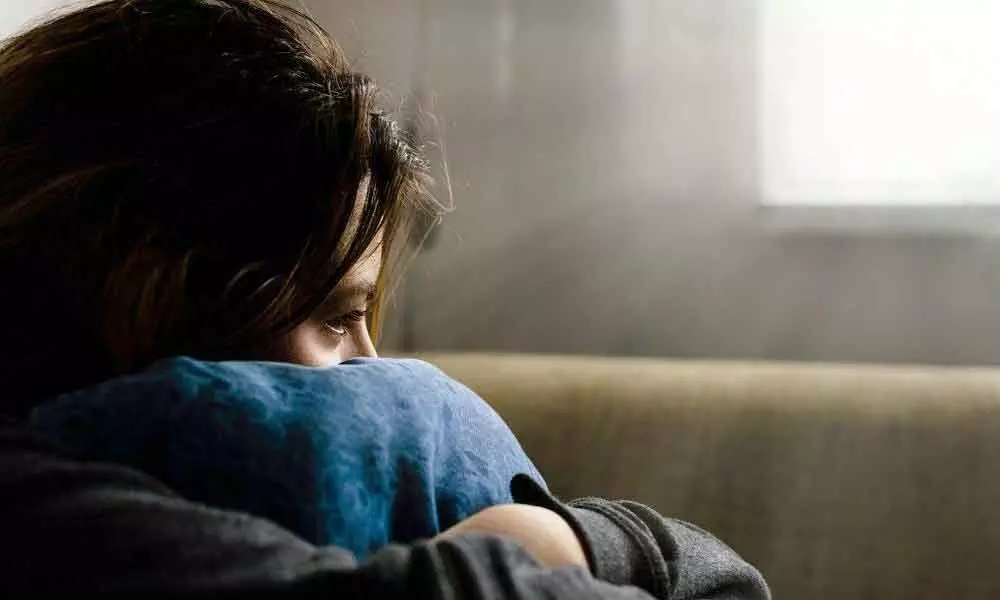Live
- Ecotourism offers career opportunities
- PVKK IT Diploma College celebrates Freshers’ Day
- Politicos RISE to defend ‘Pushpa’
- Bhumi puja performed for Adani Junior College building
- Did Allu Arjun fight for India at border, asks CM Revanth
- CM Revanth, officials to inspect residential, Gurukul hostels today
- SSBs to be set up soon in Nellore
- TGPSC all set for holding Group-II exams
- Commissioner directs officials to ensure safe water supply amid heavy rains
- Youth urged to donate blood to save lives
Just In
Mental Health Awareness: The Need of the Hour


Sushant Singh Rajput died by suicide at his residence. His death has shocked the nation and once again, it has raised several questions about our approach towards mental health.
It is time we address the needs of our loved ones, learn to recognise the cues that any of our friends or family might be giving us that they are suffering, approach it with empathy and prevent a tragedy from happening
Sushant Singh Rajput died by suicide at his residence. His death has shocked the nation and once again, it has raised several questions about our approach towards mental health.
Sushant Singh Rajput was reportedly suffering from depression and was undergoing treatment for the same for the past 6 months. This unfortunate news somewhere urges us to think that maybe that was not enough, that he needed something else, something more. His last post on Instagram for his mother hints at his disturbed mental state, and possibly his suicidal ideation, as well.
Dr KK Aggarwal, Padma Shri Awardee, president of HCF and confederation of Medical Associations of Asia and Oceania (CMAAO), says, "A tragedy like this sparks a lot of thoughts about mental health as well as the awareness around it. Nearly 14 per cent of the global disease burden is attributed to neuropsychiatric disorders. The number of suicides in India in 2015 was estimated at 133,623, at a rate of 10.6 per 100,000. In the year 2017, 197.3 million people in India suffered from mental disorders, which included 45.7 million with depressive disorders and 44.9 million with anxiety disorders. Mental health awareness in our country is quite low; also, many do not seek help because of the associated stigma."
He says, "Several factors may be associated with increased risk of suicide, such as living alone, unemployment, a sense of failure, childhood abuse and adverse childhood experiences, psychiatric disorders, medical illnesses, prior history of suicidal attempts or family history of attempted suicide. Suicidal ideation is also a risk factor for suicide. It is a medical emergency.
Additionally, in these times of COVID-19 pandemic, when everyone is restricted to their homes and is not able to meet their friends, families in distant locations, and loved ones, cases of depression and attempts of suicide related to that could possibly rise."
It is time we address the needs of our loved ones, learn to recognise the cues that any of our friends or family might be giving us that they are suffering, approach it with empathy and prevent a tragedy from happening.
Clinicians right now have the added responsibility of proactively reaching out to their patients who may be highly vulnerable at this time, especially those who live alone. He says, "Doctors can discuss some stress management tools with their patients. They can teach them mindfulness meditation strategies and encourage them to do simple things like taking a walk outside, listening to joyful music or watching a funny movie. All these can go a long way in alleviating stress and eliminating any negative thoughts."
"Always remember, 'every problem has a solution'. Even though it feels like your pain will never end, there is always a way out," he adds.
Some of the things you can do when you feel depressed, or tell someone you know is suffering from depression to do, include:
Talk to someone – Reach out
Call a friend or family member, or your doctor and discuss what you are going through. There is no shame in seeking help.
Avoid things that may trigger suicidal thoughts
These may include being alone, drinking alcohol, and consuming drugs. Spend time with family and friends. In the current scenario, when it is not possible to meet people, make use of technology; do video calls. Also, remove any triggers from your home, like alcohol, drugs, etc.
Do some physical activity
Exercise has psychological and physical benefits that can help improve mood and reduce anxiety. Yoga is beneficial for both the mind and body.
Practice mindfulness
This includes a combination of practices, habits, thoughts, and behaviours to help you get through your daily life. Mindfulness means intentionally and actively seeking to lower the body's response to stress.
Take medication as advised
If you're taking medicine to treat depression, don't skip your medicine, and take the right amount at the scheduled time.
Increase awareness
The most important thing to do is increase awareness about mental health disorders and remove the stigma associated with mental illness.

© 2024 Hyderabad Media House Limited/The Hans India. All rights reserved. Powered by hocalwire.com






